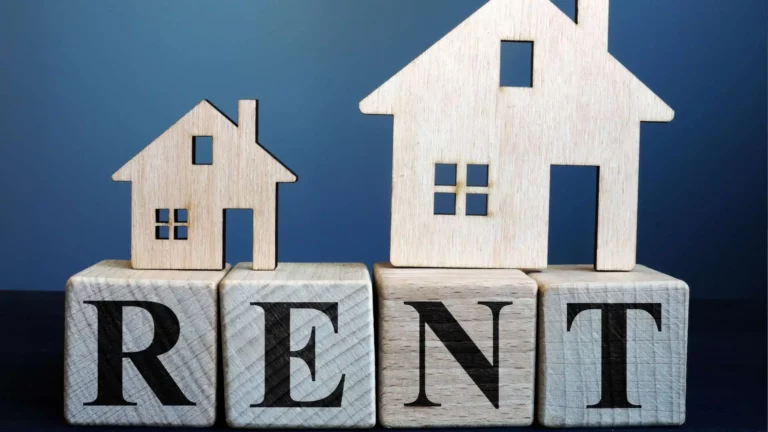Table of Contents
The ‘In-Between’ Stage of Housing Decisions
For many American families, selling a home feels like the end of one chapter and the start of another. But what happens in between? Some rush immediately into buying their next property, fearing being “out of the market.” Others choose a different path, like renting for a time before diving back into homeownership.
With mortgage rates still hovering around 6.5% this year, housing supply tight, and home prices stubbornly high, that pause to rent may be one of the smartest moves you can make. Renting after selling isn’t a step backward. It can be a financial strategy, a lifestyle reset, and a way to avoid costly mistakes. The key is understanding when renting acts as a bridge to a better purchase, and when it risks delaying your long-term wealth-building goals.
Why People Rent After Selling
Families decide to rent after selling their homes for many reasons, and they’re not always about money.
For some, the sale was necessitated by relocating for work, downsizing after kids move out, or managing divorce or financial hardship. Others sell because they see a chance to capture gains from a hot market, cashing out while prices are high. In both scenarios, renting buys time. It lets you live securely without the pressure of rushing into your next purchase.
Renting also removes one of the biggest stressors of modern housing: uncertainty. Without the burden of repairs, maintenance, or unexpected bills, you gain breathing room to reassess your finances, lifestyle goals, and even the region you want to live in.
Read related blog: How to Negotiate Your Rent Like a Pro: Top 10 Tips
Financial Benefits of Renting After Selling
One of the most overlooked upsides of renting after a sale is the financial reset it creates.
When you sell, you may walk away with a substantial chunk of equity, be it $50,000, $100,000, or more. Jumping immediately into another purchase often means tying that money back up in a new down payment, closing costs, and moving expenses. By renting, you keep that equity liquid. That liquidity matters, especially in uncertain markets.
For example:
- You can park the funds in high-yield savings accounts, CDs, or short-term bonds, earning interest while you wait.
- You avoid the risk of buying at a market peak, only to see property values dip.
- You can pay down high-interest debts, strengthening your financial profile for the next mortgage.
This “pause” lets your money work for you while you shop more strategically for the next home. In contrast, rushing into a purchase can force you into a higher interest rate, less-than-ideal property, or even stretch your budget to the point of stress.
Renting as a Hedge Against Market Volatility
The housing market in 2025 is unpredictable. While demand remains high, affordability challenges are cooling some overheated regions. Renting after selling allows you to step aside from that volatility.
If prices fall in the coming year, you’ve avoided locking yourself into a depreciating asset. If they rise modestly, your preserved equity plus rental flexibility still allows you to return without regret. Either way, you’re better positioned than someone who rushed into ownership under pressure.
This is especially important for families selling in expensive coastal cities. Many cash out with large gains, but buying again in the same market may not make sense. Renting offers space to decide whether to stay local, move to a lower-cost region, or even explore entirely new states.
Lifestyle Flexibility During Transitions
Life doesn’t always follow financial spreadsheets. Selling a home often coincides with life transitions: new jobs, retirement, kids starting college, or downsizing in later life. Renting gives you flexibility during these seasons.
Imagine you sell your suburban family home after your last child leaves for college. Do you want to downsize to a condo downtown? Move closer to your grandchildren? Try a new city altogether? Renting lets you “test drive” a new lifestyle before making a permanent commitment.
Similarly, for professionals relocating for work, renting allows you to settle into a city, explore neighborhoods, and understand commutes before buying. Rushing into ownership in an unfamiliar place often leads to regret.
Read related blog: What’s Included in Your Rent (And What’s Not)
The Emotional Benefits of Renting After Selling
Beyond finances, there’s a psychological side to renting after selling. Homeownership is rewarding, but it’s also demanding. Many families feel drained after years of managing maintenance, renovations, property taxes, and unexpected repairs.
Renting provides a reprieve. No leaky roof to fix, no broken furnace to replace, no weekend lost to mowing the lawn or shoveling snow. This relief isn’t trivial. It’s a chance to recharge before taking on ownership responsibilities again.
This emotional break can be especially powerful for retirees or near-retirees. Renting offers simplicity and stability without tying up retirement savings in a single illiquid asset.
The Downsides of Renting After Selling
Of course, renting after selling isn’t without its risks and trade-offs.
The biggest is the potential loss of wealth-building momentum. Every month you pay rent, the money is not going toward equity. If you rent for too long and fail to invest the difference, you may miss out on the appreciation and compound growth that ownership provides.
There’s also the emotional side. Some families feel unsettled renting after years of ownership. Renting can feel impermanent, with the possibility of rent hikes, non-renewals, or restrictions on how you use the space.
Finally, in a rising market, waiting too long can backfire. If prices climb faster than your savings or investments grow, you may find yourself priced out of the kind of home you hoped to buy.
The Hidden Tax Angle of Renting After Selling
When you sell a home, especially if you made a large profit, you may owe capital gains taxes unless you qualify for the IRS exclusion ($250,000 for individuals, $500,000 for married couples). Renting after selling can buy you time to plan your next move tax-wise.
You may use part of your proceeds for tax-advantaged investments, maximize retirement contributions, or even wait until you’ve met the criteria for another capital gains exclusion. While renting doesn’t come with direct tax breaks, it provides flexibility that homeowners locked into another property may not enjoy. For some families, this breathing room is financially and strategically advantageous.
The Impact on Kids and Family Stability
Selling a home often uproots children from familiar surroundings, like their bedrooms, schools, and friends. Renting can act as a stabilizing buffer during this transition. It allows families to temporarily stay in the same school district, test different neighborhoods, or give kids time to adjust before moving into another permanent home.
For multigenerational households, renting can also offer proximity to healthcare, childcare, or family support networks while the next purchase decision is carefully weighed. This isn’t just a financial consideration. It’s about preserving emotional stability during periods of change.
Renting as a Way to Rebuild Credit
Not every homeowner sells from a position of strength. Some sell because mortgage payments, debt, or other financial pressures became too heavy.
For these families, renting isn’t a pause — it’s a reset. Renting after selling provides the chance to rebuild credit scores by making consistent, smaller monthly rent payments. With improved credit, families may later qualify for lower mortgage rates or better financing terms when they’re ready to buy again.
In 2025’s high-rate environment, even a half-point difference in your mortgage APR can translate to tens of thousands in lifetime interest savings.
Renting After Selling vs. Immediate Re-Buying
| Factor | Renting After Selling | Buying Immediately After Selling |
| Liquidity | Keeps equity liquid; can invest proceeds | Ties up equity in down payment & closing costs |
| Flexibility | Can relocate easily, test new areas | Locked into new location & property |
| Market Risk | Can wait for prices/rates to shift | Vulnerable if market declines post-purchase |
| Wealth Growth | Must invest savings intentionally | Builds equity automatically |
| Stress Level | Lower (no maintenance or repairs) | Higher (upkeep + mortgage responsibilities) |
Who Benefits Most from Renting After Selling?
While the choice is personal, certain groups may benefit more from renting before buying again:
- Relocators are families moving to a new city or state. Renting lets you learn the terrain.
- Retirees: Those downsizing may want flexibility before committing to their final “forever home.”
- Families in Transition: Divorce, job changes, or major life shifts often make renting the safer short-term choice.
- Market Timers: Sellers who believe their local housing market is overheated may rent while waiting for prices to cool.
For these groups, renting isn’t a waste of money. It’s an investment in time, flexibility, and reduced risk.
The Psychological Shift: From Owner to Tenant
Going from owning to renting can feel like a loss of status, but reframing it as a choice rather than a setback changes everything. Renting can mean freedom: freedom from maintenance, freedom from property taxes, and freedom from being tied to one location.
This sense of liberation can outweigh the perceived ‘loss’ of ownership for retirees or digital nomads. Understanding this shift helps families embrace renting as part of their wealth-building journey, not as a step backward.
How Long-Term Renting After Selling Impacts Finances
| Renting Duration | Pros | Cons |
| 6–12 months | Quick reset, short-term flexibility | May pay double moving costs |
| 1–3 years | Time to invest proceeds, explore new regions | Risk of home prices rising faster than savings |
| 3+ years | Maximum flexibility, lifestyle experimentation | Missed equity growth, loss of momentum |
Renting Smart: How to Use the Pause Wisely
The key to making renting after selling work is discipline. The pause is not a vacation from financial responsibility; it’s an opportunity.
- Invest the Proceeds: Don’t let your home sale equity sit idle in checking accounts. Park it where it earns interest safely.
- Rebuild an Emergency Fund: Selling costs, moving expenses, and rental deposits may deplete cash reserves. Use the pause to replenish them.
- Research Your Next Market: Spend time visiting neighborhoods, attending open houses, and following price trends.
- Clarify Lifestyle Goals: Do you want urban energy, suburban schools, or rural peace? Renting lets you explore without regret.
- Stay Patient but Not Passive: Renting should be strategic, not indefinite. Have a timeline and clear financial targets for re-entry into ownership.
How Beem Helps Families in Transition
Moving from ownership to renting often creates short-term financial shocks: larger-than-expected deposits, double moving expenses, or overlap between mortgage payoff and first rent payment. Even when equity from the sale is strong, liquidity can feel tight during the transition.
Beem’s Everdraft™ helps bridge these gaps. Whether covering a rental deposit, unexpected moving costs, or a sudden rent hike, Beem provides up to $1,000 interest-free with no credit checks, due dates, or income restrictions. For families renting after selling, Beem ensures a smooth transition, allowing you to focus on planning your next purchase with confidence.
The Bottom Line: Renting Is a Strategy, Not a Setback
Renting after selling is no longer just a fallback. It’s a smart, strategic choice for many families. It gives you time to reassess finances, test new lifestyles, and navigate a complex housing market without rushing into costly mistakes.
But it only works if you approach it intentionally. Treat renting as a bridge, not a destination. Protect and grow your sale proceeds. Set a timeline for when and how you’ll re-enter ownership. Balance the emotional relief of renting with the long-term wealth goals that homeownership provides.
With careful planning and tools like Beem to cushion the bumps, renting after selling can be the wisest step between yesterday’s home and tomorrow’s dream. Download the app now!
FAQs on Renting After Selling: A Smart Move Before Buying Again?
How long should I rent after selling before buying again?
It depends on your goals. Some families only need 6–12 months to explore neighborhoods or wait for life transitions, while others rent for 2–3 years to rebuild savings or wait out high interest rates. The key is setting a target timeline so you don’t lose momentum.
Does renting after selling hurt my long-term wealth?
Not necessarily. You can grow wealth while renting by investing your home sale proceeds wisely — in high-yield savings, retirement accounts, or low-risk investments. The risk comes if you spend the proceeds without a plan, which delays your ability to re-enter ownership.
Can renting after selling help me avoid buying at the wrong time?
Yes. Many families regret buying too quickly in overheated markets. Renting provides breathing room to watch market trends and avoid locking into a mortgage just before prices dip or rates rise further.
What should I do with the money from my home sale while I rent?
Most families keep it liquid but productive: in high-yield savings accounts, short-term CDs, or low-risk investment vehicles. Avoid tying it up in long-term investments you can’t easily access when you’re ready to buy again.
How does Beem help during the renting phase?
Even after a successful sale, renting comes with hidden costs: deposits, moving expenses, and higher-than-expected rent. Beem gives you up to $1,000 instant cash in emergencies with no interest, credit checks, due dates, or income restrictions. That means you can protect your home-sale proceeds, keeping them intact for your next purchase while Beem covers short-term shocks.














































